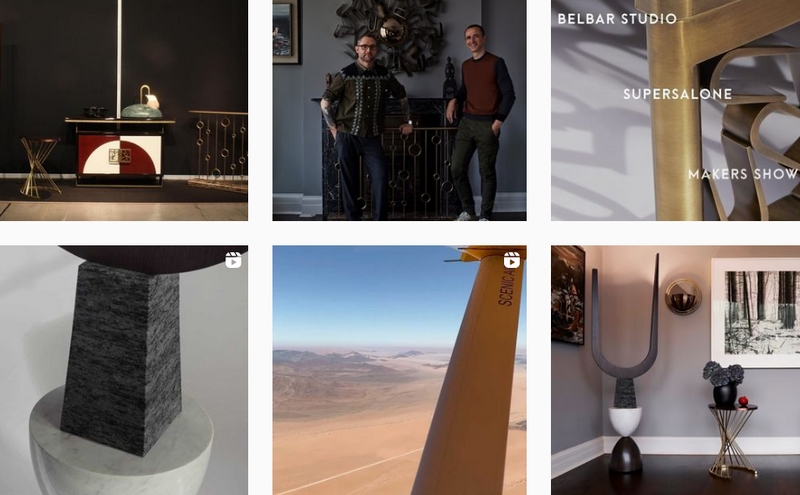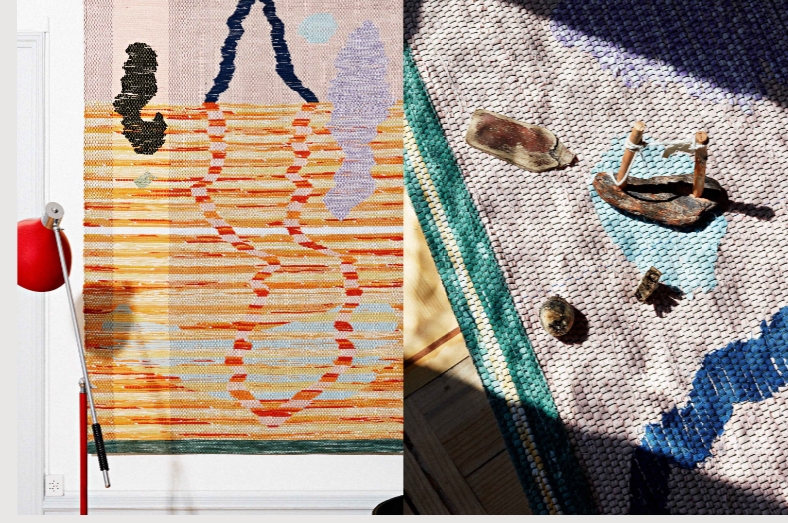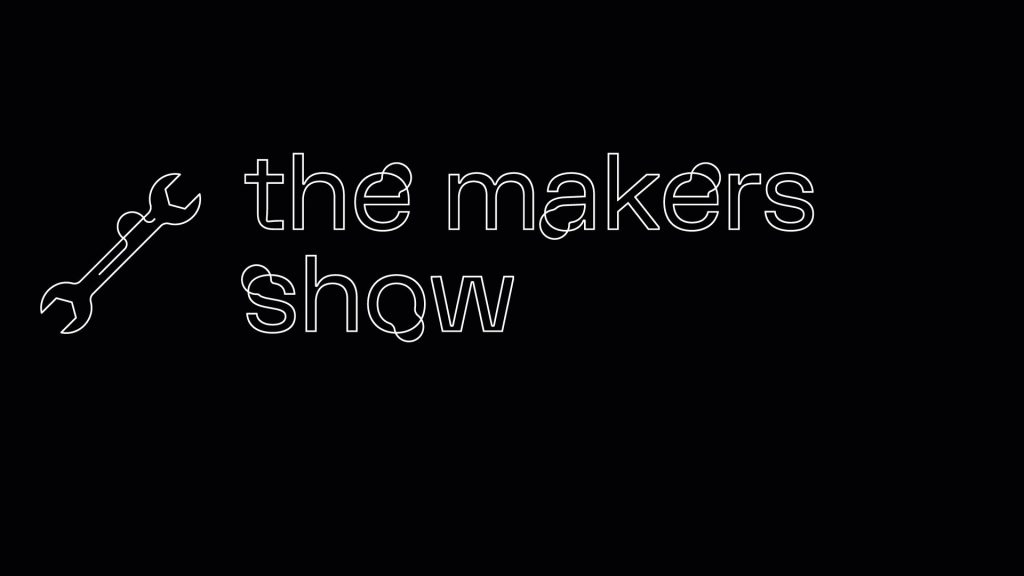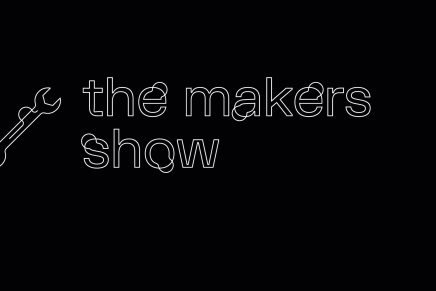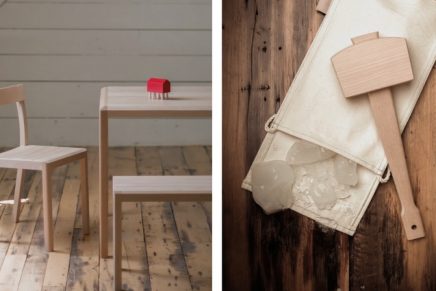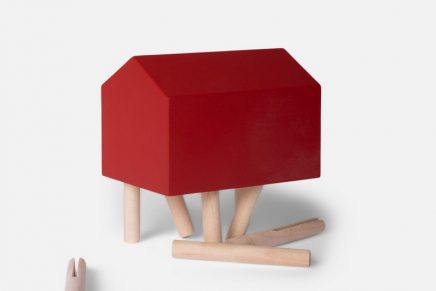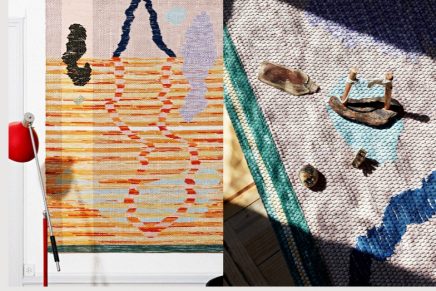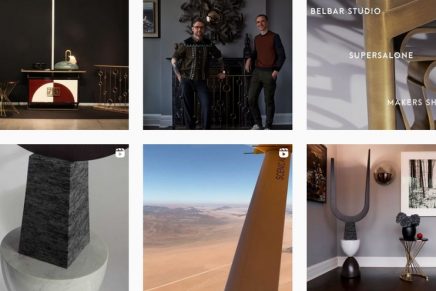The Makers Show: Artisans, Self-Producers and Independent Designers at 2021 “Supersalone” Milano, Italy.
The “Supersalone” at Salone del Mobile is an incubator of new stories, offering an opportunity to discover original products, stay abreast of emerging phenomena, and keep up with how the independent design market is evolving, in direct contact with its leading exponents.
The 2021 Makers Show is a section of the “Supersalone” – the special Salone del Mobile.Milano event curated by Stefano Boeri – dedicated to self-producing designers from all over the world, showcasing the output of ateliers, studios, workshops and start-ups that combine design experimentation with new production techniques and research into materials. An overall snapshot of independent design and the new directions it is taking, this contribution to the group exhibition offers an even more comprehensive overview of diversity in the world of creative living.
A fluid, cross-cutting exhibition, the Makers Show was distributed over the four “Supersalone” pavilions. Embracing different areas of design, from furniture to accessories, in one place, it brought together objects that embody the new economic, social, productive and relational values conveyed by the confluence of craft skills with new digital knowledge, local knowledge, global needs, specialized skills and collective narratives.
Japanese by origin and Milanese by adoption, Tuksaka Goto’s wooden boxes and “Modigliani style” glass bottles are modelled with artisanal patience to bring the utility of beauty into everyday life. A combination of aluminium and Verde Alpi marble laser cut to minimal thickness characterizes three brand new objects (a bench and two small tables) in aluminium and Verde Alpi marble made by Milanese architecture and design studio NM3 (Nicolò Ornaghi, Delfino Sisto Legnani and Francesco Zorzi).
Paolo Dell’elce Design Studio of Milan showcases glazed terracotta in a collection created using ancient Leiria clay combined with evocations of a trip to Portugal. Ishinomaki Laboratory’s iconic products are part of the Made in Local initiative, which shares the design and expertise of products conceived in Japan with partners around the world (in this case, made in Berlin) to promote a new sustainable business model.
The Fair naturally offers space to the latest output by Piet Hein Eek, who may be considered the initiator of a multidisciplinary approach to design – and indeed to the idea of the designer – beginning the long fight to revalue and use discarded items, offcuts of wood and materials previously used for other purposes, to combat waste and promote sustainable living.
Further examples of how to revive recycled plastic may be found in the work of Italian Andrea Elena Febres Medina (Superforma) and the modern technical and poetic evolutions of 3D printing by Amsterdam-based Kooij (Dirk van der Kooij) applied to the conception of new lamps conceived with strict reference to material and technique.
In terms of inspiration and realization, the search for colour and form is evident in Berliner Rebekka Stange’s sustainable carpets: handmade at a carpet factory in Kathmandu, Nepal, they embody the encounter of art and craftsmanship. Also from Nepal, ethical thinking and making combine in Jonathan Radetz of Hamburg’s collection of carpets; the designer also presents the results of his research into a special process of recycling aluminium, in which salt creates cavities on the surface, making it almost like moonstone, and his research applied to glass, all with the goal of demonstrating the possibilities of design and the potential of innovation. In a tribute to the Finnish masters of the 1960s and an expression of material free-thinking, Finland-based Katerina Krotenko focuses closely on process development, allowing the power of fire – used to burn the wooden moulds in which glass paste was previously blown – to imprint itself on the surface of her glass objects. Wholly captivated by the pliability of glass, Milena Kling dedicates herself to experimental exploration of tradition while enthusiastically embracing craftsmanship as an ethical way of working, conveying the quality of the beautiful alongside the good as she creates sophisticated collections that appeal to collectors.
German Timo Wuchner works in wood without using glue and avoiding composite materials, seeking to compose objects that may be disassembled down to their constituent parts to be repaired and replaced. The Italians of From outer Space hypothesize the production of design using only semi-finished products, striking a balance between ergonomic dimensions, functional needs, and reduced resource consumption. To lengthen the life of the most useful furniture, whether it’s his designer chairs or other items, Tobias Brunner (Bureau Brunner) of Switzerland has developed ad hoc accessories including a long cable with a magnet to bring power to where it is needed. Gradient Ateliers showcase the concepts of durability and recycling, adopting a wholly multidisciplinary approach in order to make genuine, everyday objects more accessible. Martha Schwindling of Berlin designs simple objects that are a culmination of their concept, production and use.
Working in textiles, Swiss-Swedish Estelle Bourdet handmakes objects that embody the social and domestic aspects of a practice initiated in Sweden in the 17th century. Craftsmanship as economic redemption and as a form of embracing reality and contemporaneity shines through in the work of the Fogo Island Workshop collective, a permanent workshop that offers new opportunities to the Canadian island, and is now taking its artefacts beyond its North Atlantic home. Mediterranean flavours infuse pieces developed between Italy and Morocco by French outfit Trame through its exploration of traditional materials. Founded by three former university friends, the work of Stuttgart-based mixed trio Anima Ona seeks to create new bridges between craftsmanship, research and industry in items that rethink end-users’ aspirations, using recycled waste material and truly experimental processes.
Laurent Belamich and Paul Barry (BelBar Studio) of France occupy the common ground between art, design and architecture in work cross-pollinated by organic forms, exotic influences and citations of Masters, mixing style with the wisdom of a craft approach. Boee’s ethereal made-in-Germany objects pursue an artistic approach that evokes and infuses movement and lightness in space. Art plays a lead role in Dechem’s collection of glass and brass lamps, updating the crafts traditions for which Prague has become world famous.
Last but not least, Italian Emanuel Gargano (ESChatology) focuses on a particular moment in life, dedicating himself to the design and production of funerary urns and accessories with unique passion and lyrical inspiration.

